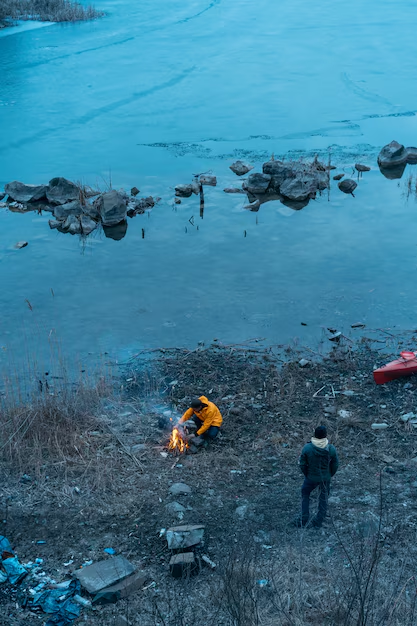If you are setting up an industry, business, or project in Chennai, obtaining Pollution Control Board Approval Chennai is a crucial step to ensure compliance with environmental regulations. This approval is essential for maintaining environmental sustainability while operating within the law. Here, we answer some frequently asked questions about the process, types of approvals, and its importance.
1. What is Pollution Control Board Approval?
Pollution Control Board (PCB) approval is a mandatory clearance issued by the Tamil Nadu Pollution Control Board (TNPCB). It certifies that your business or project complies with environmental laws and regulations, minimizing its environmental impact.
Why is it important?
- Legal compliance: Avoid legal consequences and penalties.
- Environmental responsibility: Prevent air, water, and soil pollution.
- Sustainability: Promote eco-friendly business practices.
2. Who needs Pollution Control Board Approval in Chennai?
PCB approval is required for businesses and projects that have a potential environmental impact. These include:
- Industries: Chemical, textile, pharmaceuticals, manufacturing, and more.
- Construction Projects: Residential, commercial, or industrial buildings.
- Healthcare Facilities: Hospitals and clinics producing biomedical waste.
- Service Establishments: Hotels, restaurants, and automobile service centers.
If your business involves handling hazardous substances, discharging effluents, or emitting pollutants, this approval is mandatory.
3. What are the types of Pollution Control Board Approvals?
a. Consent to Establish (CTE)
CTE is the first approval needed before setting up a project. It ensures that your planned operations and infrastructure align with environmental standards.
b. Consent to Operate (CTO)
Once the project is established, CTO approval is required before beginning operations. It validates that the setup adheres to environmental guidelines.
c. Renewal of Consent
CTO is not a one-time approval; it requires periodic renewal based on the industry category.
4. What are the industry categories under PCB regulations?
Industries are classified into four categories based on their pollution potential:
- Red Category: High-pollution industries (e.g., chemical manufacturing).
- Orange Category: Medium-pollution industries (e.g., food processing).
- Green Category: Low-pollution industries (e.g., small-scale workshops).
- White Category: Non-polluting industries (e.g., software development).
Each category has specific compliance requirements.
5. What is the application process for PCB approval in Chennai?
The process includes several steps:
Step 1: Prepare Necessary Documents
The key documents include:
- Business registration details.
- Layout plan of the project site.
- Detailed project report.
- Consent fee payment receipt.
- Effluent and emission analysis reports.
Step 2: Online Application Submission
Applications can be submitted through the TNPCB’s official website. Ensure that all forms are duly filled with accurate information.
Step 3: Inspection by PCB Officials
After submission, PCB officials will inspect your site to verify compliance with environmental norms.
Step 4: Approval or Recommendations
Based on the inspection, you may receive approval or recommendations for corrective actions.
Step 5: Obtain Consent
Once all conditions are met, you will receive the CTE or CTO, depending on the stage of your application.
6. What are the common challenges in obtaining PCB approval?
- Incomplete Documentation: Missing or incorrect documents can delay approval.
- Non-Compliance: Failing to meet technical and environmental standards may result in rejection.
- Misclassification: Incorrect categorization of your industry can complicate the process.
- Delays in Inspection: Long wait times for site inspections can hold up approvals.
7. How long does it take to get Pollution Control Board Approval in Chennai?
The timeline varies depending on the complexity of the project and category of industry. Typically:
- CTE approval may take 30-60 days.
- CTO approval might take an additional 30-90 days. Delays can occur if there are discrepancies in the application or if corrective measures are needed.
8. What are the costs involved in PCB approval?
The consent fee depends on the size and type of your industry. Fees are typically based on:
- Capital investment of the project.
- Type of industry (Red, Orange, Green, or White).
Additional costs may include consultancy fees if you hire professionals to assist with the process.
9. Can I operate without PCB approval?
No. Operating without the necessary PCB approvals is illegal and can lead to:
- Hefty fines.
- Legal action or closure orders from the board.
- Loss of reputation and business opportunities.
It is advisable to obtain the required approvals before starting operations.
10. Can I seek assistance for the PCB approval process?
Yes, many consultants specialize in obtaining Pollution Control Board Approval in Chennai. They can help:
- Prepare and submit documentation.
- Liaise with PCB officials.
- Ensure compliance with all regulations.
While hiring a consultant incurs additional costs, it can streamline the approval process and reduce the likelihood of errors or delays.
Conclusion
Obtaining Pollution Control Board Approval Chennai is a vital step for any business or project with environmental impact. It not only ensures compliance with legal standards but also demonstrates a commitment to sustainable practices. By understanding the requirements, preparing thoroughly, and possibly seeking professional assistance, you can secure the necessary approvals with minimal hassle.
Invest in environmental compliance today for a sustainable tomorrow!

